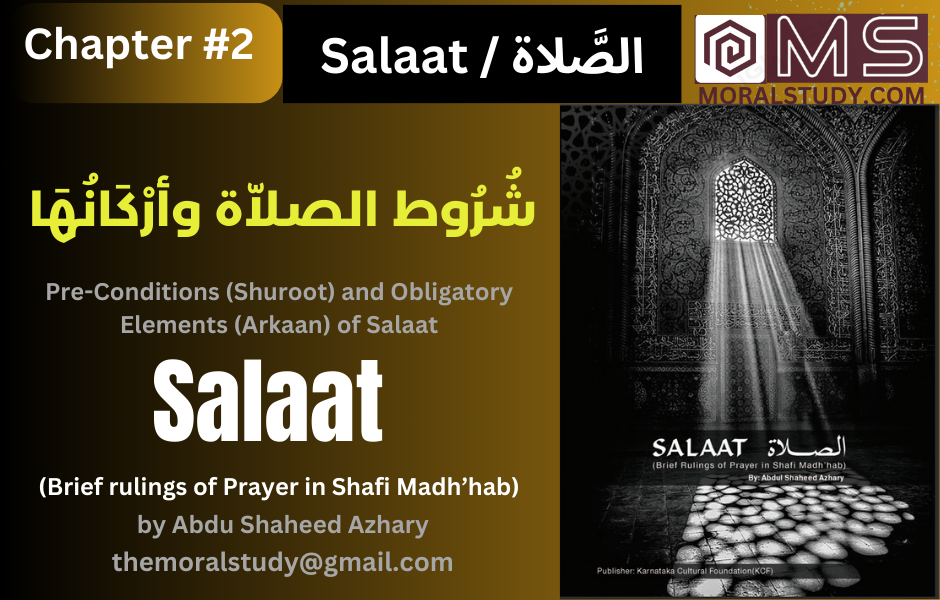- Know who is Mukallaf
- Understand Shuroot and Furood of Salaat
- Differentiate between Shuroot and Arkaan
- Pre-Conditions (Shuroot) and Obligatory elements (Arkaan) of Salaat
- Who should pray Five Times Prayers?
- Five times prayer are obligatory for every Muslim who is Mukallaf (مُكَلَّف) and in the state of purity (طَاهِر).
- The woman is exempted from the obligation during the menstruation (حَيْض) or postnatal bleeding (نِفَاس), because she is not in the status of purity. Also, she is not permitted to perform Salaat during Haid and Nifas.
- The child is exempted from the obligation because he is not بالغ
- One who lost his sanity (عَقْل) through madness or illness is exempted from the obligation because he is not (عَاقِل).
- Even though the children are not obliged to pray five times prayer, Islam ordains that discriminate children (مُمَيِّز) should be taught how to pray and instructed to perform prayers when they reach seven and it is necessary for parents to beat them if they didn’t pray after they reach ten years. The parents are also instructed to teach them basic Islamic rulings.
- Meanings of شَرْط (condition), رُكْن (obligatory element) and سُنَّة (Sunnah)
- The prayer (Salaat) consists of two major parts; obligatory and non-obligatory actions. Obligatory actions of Salaat are divided into two; Shart (شَرْط) and Rukn (رُكْن). Non-obligatory actions are called Sunnah (سُنَّة).
- The difference between شَرْطand رُكْنis that the former is not a part or portion of the prayer while the latter is the part of the prayer. The شرط is required to maintain throughout the Salaat while رُكْن is only part of it. For example, the validity of Salaat depends upon the purity throughout the prayer but it is not a part of the prayer, so the purity is a condition (شَرْط). The validity of Salaat also depends upon reading فَاتِحَة, which is a part of it, so reading فاتحة is an essential element (رُكْن).
- While Shart and Rukn are the obligatory parts of an action, Sunnah is only recommended one. For example, the prayer (Salaat) is valid even without reading دُعَاء الاِفْتِتَاح (beginning prayer started with “Wajjahtu”) before فَاتِحَة, because it is Sunnah.
- Sometimes Rukn is called Fard (فَرْض) and Sunnah is called Mandoub (مَنْدُوب). The plural forms of the Rukn, Fard, Shart and Sunnah are Arkaan (أَرْكَان), Furood (فُرُوض), Shuroot (شُرُوط) and Sunan (سُنَن) respectively. This classification of Shart, Rukn and Sunnah is applicable to most of the worships.
This is excerpts from the book Salaat (Brief rulings of Prayer in Shafi Madh’hab) by Abdu Shaheed Azhary. To download the full chapter click the below link. To support us, please consider acquiring the digital copy of the book from Amazon
